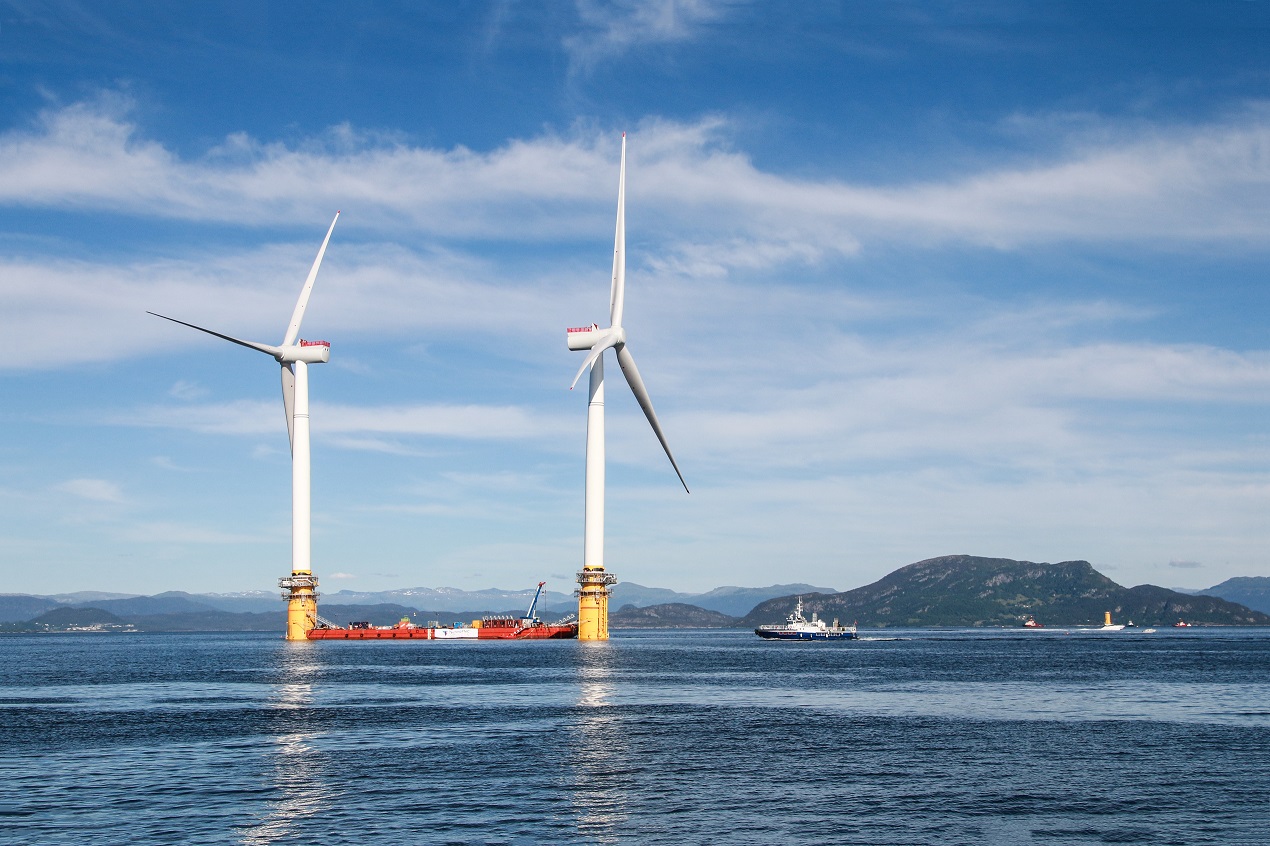The Energy Transition | UK government publishes further consultation on changes for AR7
Published on 2nd June 2025
Welcome to our top picks of the latest energy regulatory and market developments in the UK's transition to net zero.

This week we look at further government consultation on changes to AR7, delay to transmission charges cap and floor, Defra consults on improving biodiversity net gain for nationally significant infrastructure projects, and more.
DESNZ publishes further consultation on potential changes for AR7
On 27 May, the Department for Energy Security and Net Zero (DESNZ) published its consultation seeking stakeholder views on technical changes to the Contracts for Difference (CfD) scheme in advance of Allocation Round 7 (AR7), due to open for applications this summer.
The consultation follows a previous DESNZ consultation which ended on 21 March this year. That consultation attracted a range of views on its proposal to relax the eligibility requirements for unconsented fixed-bottom offshore wind projects (OFW) to enable them to participate in the CfD process. DESNZ is still reviewing feedback from the March consultation and is due to publish a final response ahead of AR7.
Stakeholders have been asking for further consultation and the DESNZ is now inviting views on technical and drafting amendments that might be required to the CfD scheme so the proposed policy can be implemented if the government decides to proceed with it.
The CfD changes outlined in the consultation seek to reasonably adjust the eligibility rules and contract terms to accommodate the specific circumstances of an unconsented OFW project awarded a CfD and to address matters outside the project's control. DESNZ has expressed that in all other respects, unconsented OFW projects should be subject to the same terms and obligations as consented projects.
Among other things, the consultation proposes reasonable adjustments relating to:
- providing confirmation of planning status;
- providing unconsented OFW projects with time extensions to respond to planning-related delays;
- giving the Low Carbon Contracts Company the right to terminate projects whose planning consent is refused; and
- including contractual provisions to accommodate capacity reductions where necessary to comply with planning conditions.
Separately, the consultation also asks stakeholders for their suggestions on adjustments that DESNZ should take into consideration in the CfD scheme to enable a smooth interaction with the grid connection reform process.
DESNZ welcomes views from anyone with an interest in the proposals, particularly developers of fixed-bottom OFW projects and supply chain companies considering participating in AR7.
It emphasises that this consultation is "without prejudice to a final government decision on whether to proceed with this policy" and "should not be interpreted as an indication that any specific policy outcome will be adopted".
The consultation is open to responses, which can be submitted via the online portal or by email, until 16 June 2025.
Ofgem consults on Long Duration Electricity Storage Project Assessment
Ofgem has published a consultation document outlining the proposed approach for assessing Long Duration Electricity Storage (LDES) project applications currently being submitted within the application window. By establishing a clear and fair selection process for the implementation of the LDES cap and floor regime, Ofgem aims to attract investment in storage technologies that support renewable energy integration, enhance grid stability and deliver value to consumers.
The consultation proposes a Multi-Criteria Assessment (MCA) framework to evaluate eligible LDES projects. This framework is designed to be transparent, comprehensive and balanced, combining quantitative and qualitative measures. The MCA includes three main components:
- Economic assessment: evaluating projects by considering effects on consumer and producer welfare, project-specific benefits, and broader social and economic outcomes such as job creation and innovation;
- Strategic assessment: examining qualitative factors beyond economic models, such as technology diversity, system security, flexibility, long-term value and need for public support; and
- Financial assessment: evaluating a project’s financial health by reviewing revenue, costs, cap and floor payments, and consumer value.
The overall assessment of each project's viability and suitability involves several stages. Initially, projects will undergo an eligibility screening based on criteria set out in the Eligible projects then proceed to the MCA, supported by detailed modelling from the National Electricity System Operator (NESO) that captures system and welfare impacts. To address uncertainties in future system conditions, scenario-based modelling and sensitivity analyses will be applied, enabling informed decision-making. Projects will then be ranked primarily on net present value, with adjustments for non-monetary impacts to ensure alignment with policy objectives.
The consultation period is open until 25 June 2025 and stakeholders are invited to send their input via email to LDES@ofgem.gov.uk. Feedback will be incorporated into the final assessment framework, expected to be published in Q3 of 2025, with project approvals anticipated in Q2 of 2026.
Delay to transmission charges cap and floor
Ofgem has announced that it will delay its decision on whether to implement a temporary cap and floor on Transmission Network Use of System (TNUoS) charges.
The cap and floor proposal was originally tabled by Ofgem in September 2024, when the regulator requested in an open letter that NESO raise a code modification proposal. As we previously reported, the letter stated that the intervention would help relieve investment uncertainty in particular in areas of the country, such as northern Scotland, where the TNUoS charges are predicted to rise to disproportionately high levels over the next 10 years due to the rate of investment in the transmission network.
The latest announcement states that the delay will allow Ofgem sufficient time to consider the evidence it received on the topic, in full, and assess wider market impacts.
While Ofgem did not confirm an exact date when the final decision will be published, it is expected to be in late June to early July of this year. In October 2024, following a request from NESO, Ofgem designated the modification as urgent (which means a final decision is required by 1 July 2025) so as not to hinder CfD AR7. NESO will now be tasked with sharing the timeline updated with industry.
Defra consults on improving the implementation of biodiversity net gain for nationally significant infrastructure projects
The Department for Environment, Food and Rural Affairs (Defra) has published a consultation in respect of implementing biodiversity net gain (BNG) requirements for nationally significant infrastructure projects (NSIPs). These requirements would provide that NSIPs must leave biodiversity in a "measurably better state than before development took place".
BNG requirements for new developments came into force in early-mid 2024, under the Environment Act 2021. They require developers to deliver 10% BNG and leave habitats in a better state than they were before. The Environment Act 2021 also contains provisions for mandating BNG delivery in large infrastructure projects qualifying as NSIPs. These are dealt with under the Planning Act 2008 (as opposed to the Town and Country Planning Act 1990) due to their size and significance. Included within this are renewable energy projects whose generating capacity is currently 50MW for solar and 100MW for offshore wind (noting that these thresholds are in the process of changing following updates to national planning policy).
Defra intends that BNG requirements will apply to applications for NSIPs that are submitted from May 2026. The consultation builds on the previous one run in 2022 which sets out the proposed approach for BNG requirements extending to NSIPs, providing some further detail on a "core" approach to BNG for all categories of NSIP, while reserving the possibility that some categories of NSIP will need to be dealt with under bespoke arrangements.
The consultation seeks views from stakeholders including affected developers on whether the proposed framework is clear and fit for purpose to ensure that developers can deliver BNG for their projects and that the relevant examination bodies can successfully determine applications on the basis of whether they meet the BNG objective.
In particular, Defra would like to hear whether the proposed text provides sufficient information and guidance for calculating and delivering BNG in the NSIP context, the cost of doing so at each phase of the application process, and whether any specific NSIP types should have different requirements to the "core" approach.
The consultation closes on 24 June 2025. Stakeholders are invited to make their submissions on the Defra website at Biodiversity net gain for nationally significant infrastructure projects - Defra - Citizen Space.
Alternatively, responses can be sent by email to: bngconsultation@defra.gov.uk
This article was written with the assistance of trainee solicitors, Adam Budd, Ellie Symk, Imogen Drummond, and paralegal, Tomi Agbonifo.








